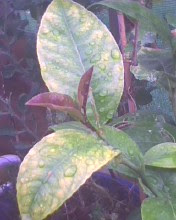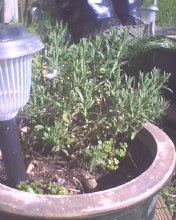'The future of farming is reliant on all farmers playing their part in protecting the honey bee'.
That's a pretty strong statement, Federated Farmers of New Zealand! What's so important about bees? Aren't they just another tiny insect that buzzes around making honey? Surely they aren't that big a deal. Some people don't even like honey! Why do we need them so much?
Well, apparently, the FF of NZ tell us that:
'The bee is one of the hardest workers in horticulture and agriculture; about $3 billion of our GDP is directly attributable to the intensive pollination of horticultural and specialty agricultural crops by bees.'
Ok, so they work hard - well, who doesn't these days? what's so great about that?
FF of NZ:-
'Of all the food we eat, about a third of the calories and three-quarters of the diversity rely on bees for pollination.'
Hmm. Okay, that sounds pretty important. It sounds like, if there were no bees, there might not be too much food around, or much of a range of food. But why should we humans take care of them? can't they do that all for themselves, busy little things that they are?
The farmers say:
'The honey bee is in trouble. Worldwide, bee numbers are declining. The bee is being attacked by an increasing number of bee pests (e.g. varroa mite) and diseases. Featuring prominently in this equation is the severe decline in floral nutrition resources, creating a shortage of quality pollen for the bees to eat. Malnutrition severely compromises the bees' resistance to pests and diseases.'
Hmm. Okay, that does sound serious, and not in a good way. So, let me get this straight:
- we need bees to pollinate plants, so that we can grow food
- bee activity contributes to, and is responsible for, a really quite substantial chunk of essential agriculture and horticulture, which in turn is responsible for a healthy GDP and export revenue
- bees need flowers and bee-friendly environments, so that they can eat enough to keep going, and fight off pests and diseases
- bees currently don't have enough food or safe bee-friendly places to live and thrive. Also, they are being attacked by diseases and pests that they can't fight off when they are starving
- bees are slowly dying off, all around the world, and their numbers are declining significantly enough to pose a serious threat to human survival and economic development
Well, Federated Farmers of New Zealand, when you put it like that, it's really quite a problem! But I'm only one person, with a tiny patch of garden. How can I start helping to reverse this dreadful turn of events?
Turns out that it is really pretty easy to do something to encourage, nurture, and feed bees. As my gardener grandfather used to say, "when the old lady peed in the sea, she said 'every little helps'..." Even though I only have a small piece of garden, which is in an extremely harsh and inhospitable environment, it is amazing how many bee-friendly plants I have grown.

lemon balm in flower

globe artichoke


thyme and oregano

californian poppies

carnations
raspberry
 strawberry
strawberry

lemon tree - again, bees like the flowering process

lemon tree, lemon balm, thyme and oregano -a bee smorgasbord


and of course, lovely lavender, a true bee favourite
I have just been given some fabulous marjoram cuttings today too, which I will plant up ready for the bees to come and enjoy - many thanks to Andrea for that beautiful bounty. Other plants on my bee wish list include cornflower, marigold, and crocus.
So, Federated Farmers of New Zealand, and bees of New Zealand, take heart, I am growing a small meal for you, and I hope it will turn into a veritable feast. And take heart all would-be gardeners and bee-lovers, there are lots of small plants which encourage and nourish bees, so go on, bee brave, honey, and put some in the ground! Let There bee Bees on Earth, and Give Bees a Chance.
happy gardening,
lou











































